Tensile specimen machining is a precision-driven process necessary for material testing, particularly in assessing strength and durability under tension. This procedure involves shaping materials into standardized samples by special specimen preparation machines for tensile testing. Engineers, material scientists, and quality control professionals rely on these machined specimens to predict how materials will behave under forces that might cause them to stretch, deform, or break
Known under other terminologies such as "test specimen preparation" or "material sample machining," tensile specimen machining is the first step in tensile testing. This stage requires specialized equipment, with Computer Numerical Control (CNC) machines often at the forefront due to their precision and efficiency in producing consistent and standardized specimens. Tensile testing hinges on the availability of these expertly machined specimens, typically fashioned in two styles: flat (dog bones) and round. Each design caters to different testing requirements and material types. The correct foundational process of tensile testing cannot be carried out without specially prepared specimens.
Whether you are curious about tensile specimen machining or driven to learn more by professional goals, this blog is for you. We will explore the significance of tensile specimen machining, its intricacies, potential applications, and the creators behind these essential components. We'll also discuss how these specimens pave the way for new products and technologies across many industries. Our comprehensive look at tensile specimen machining aims to provide you with a better understanding of its importance in the advancement of material science and engineering.
The Role of Tensile Specimen Machining in Material Testing
In material testing, each test type requires unique samples based on the specific material under examination. For instance, soil testing uses compacted soil samples to assess compressibility or shear strength. Rubber testing involves dumbbell-shaped rubber specimens to evaluate elasticity and tensile strength, and fluid testing requires samples in contained environments to measure properties like viscosity and density. Similarly, tensile testing, a pivotal process in understanding a material's strength and ductility, necessitates the precise machining of tensile specimens. As highlighted earlier, tensile specimen machining is indispensable for conducting tensile tests effectively.
Precision in the shape and form of tensile specimens must not be underestimated. Specialized standards, such as those set forth by ASTM (American Society for Testing and Materials) and ISO (International Organization for Standardization), dictate the dimensions, shapes, and surface quality of these specimens to guarantee uniformity and comparability across tests and materials.
The consequences of deviating from these standards, even slightly, can be extremely serious. An incorrect form, the presence of a crack, or even a minor scratch on the surface of a tensile specimen can drastically alter the stress distribution during testing. Such imperfections introduce variables that can skew the results, leading to underestimation or overestimation of a material's tensile strength, ductility, and overall performance. For instance, a scratch on a metal specimen can act as a stress concentrator, causing damage at a lower force than the material would typically withstand. This not only affects the integrity of the test but can also lead to erroneous conclusions about the material's suitability for its intended application. As a consequence, safety and functionality can be put at risk in practical use as a result.
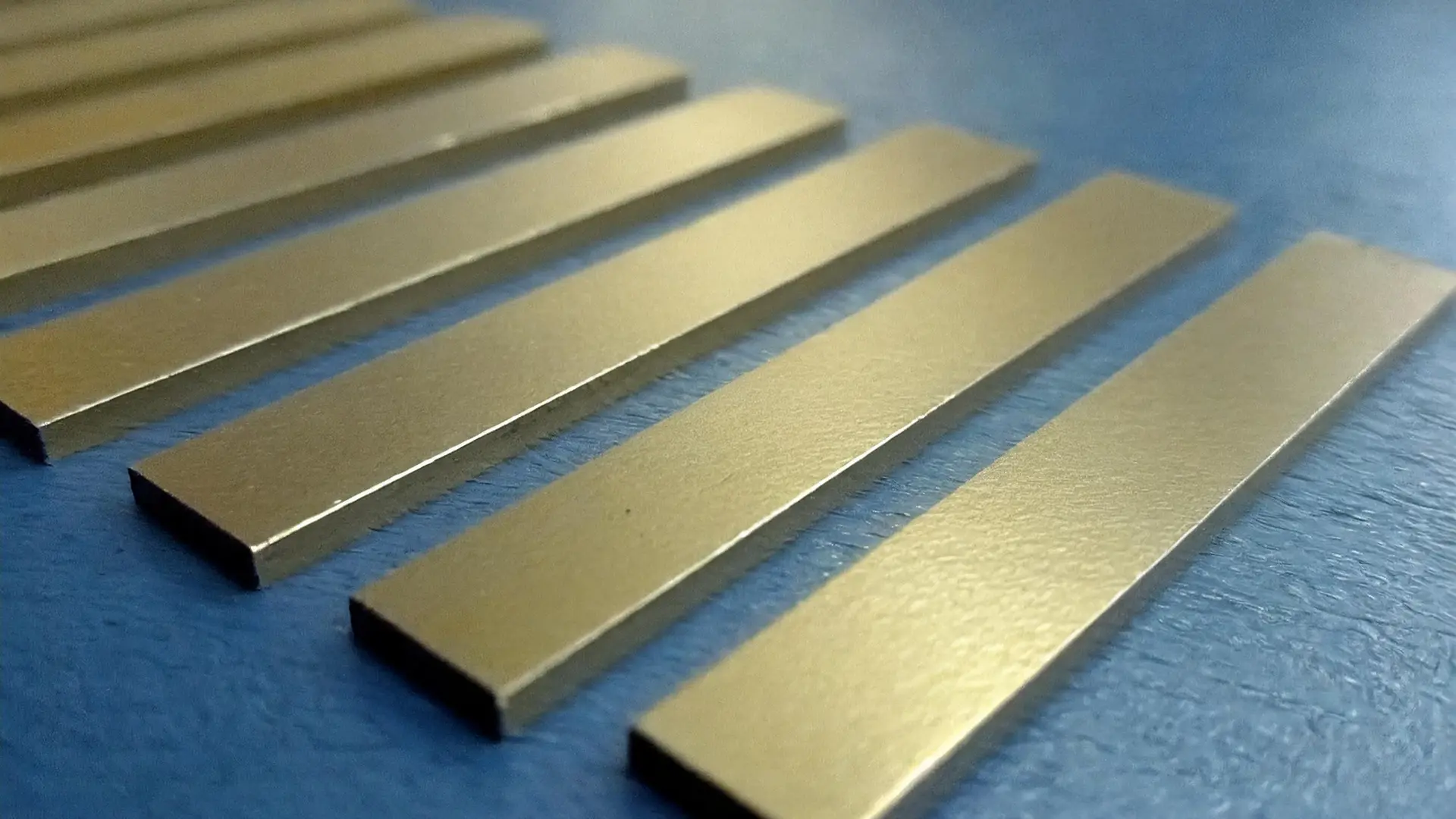
Choosing Different Materials for Tensile Specimen Machining
Tensile specimen machining is versatile because of its ability to accommodate an array of materials - metals, plastics, composites, and even ceramics - each requiring a specimen that precisely complies with standardized dimensions and shapes. This adaptability is of great importance, as the material's composition directly influences the specimen preparation method, the type of tensile test conducted, and the interpretation of the resulting data.
Several factors influence specimen preparation for tensile testing, including the material's mechanical properties, its intended application, and the specific requirements of the tensile test standard. The materials used for flat or "dog bone" shaped specimens are also suitable for round specimens. However, some materials may behave differently in flat versus round specimen configurations. For example, brittle materials like ceramics may require specific considerations of specimen shape to prevent early failure during machining or testing. Similarly, the surface finish of a metal specimen can negatively impact its tensile strength measurement.
Tensile specimen machining materials typically fall into three primary categories: soft, medium, and hard. This classification hinges on their inherent mechanical properties, specifically, hardness and ductility. Soft materials, such as certain plastics and soft metals like aluminum, are characterized by their ease of processing. However, they require careful handling to avoid deformation. Hard materials, including high-carbon steel and some alloys, offer resistance to shape changes but demand advanced machining capabilities to shape them into specimens. Medium materials strike a balance, offering a moderate level of hardness and ductility, making them suitable for many different testing needs.
Categories of Materials for Tensile Specimen Machining
It is not surprising that there is a large and diverse world of tensile testing, covering everything from natural substances to advanced composites. Each material category brings its unique set of properties to the table, influencing how it's machined into specimens for tensile testing. This wide range makes it possible that tensile testing can be applied to many different fields. Materials used in tensile specimen preparation include metals, polymers, composites, ceramics, textiles, biomaterials, advanced materials, and natural materials. As we take a look at the main categories of materials used for tensile specimen machining, we will explore the specific characteristics of each. This will offer insights into why certain materials are chosen for specific testing needs. It will also show how their inherent properties affect their behavior under tensile stress.
1. Metals
Metals are used in tensile specimen machining for many industrial applications due to their unique mechanical properties. These include yield strength, tensile strength, and modulus of elasticity. These properties are significantly influenced by metal composition and heat treatments. Metals meet many application needs, from structural components in construction to key elements in aerospace engineering.
Characteristics and Applications:
Steel Alloys: Including carbon steel, stainless steel, and alloy steel, each variant offers its own levels of strength and corrosion resistance. Their versatility makes them foundational in industries such as construction, automotive, and manufacturing.
Aluminum Alloys: Aluminum alloys, such as 6061-T6 and 7075-T6, are celebrated for their lightweight yet strong properties. They are extensively used in sectors where high strength-to-weight ratios are a must, including aerospace and automotive.
Copper Alloys: Known for excellent electrical conductivity and corrosion resistance, copper alloys, including brass and bronze, are preferred for electrical components and marine hardware.
Titanium Alloys: Titanium alloys, like Ti-6Al-4V, boast the highest strength-to-density ratios among metallic elements. Their exceptional durability and corrosion resistance make them indispensable in aerospace and medical implants.
Nickel Alloys: Alloys such as Inconel and Monel, capable of withstanding extreme temperatures and corrosive environments, find applications in chemical processing, power generation, and aerospace.
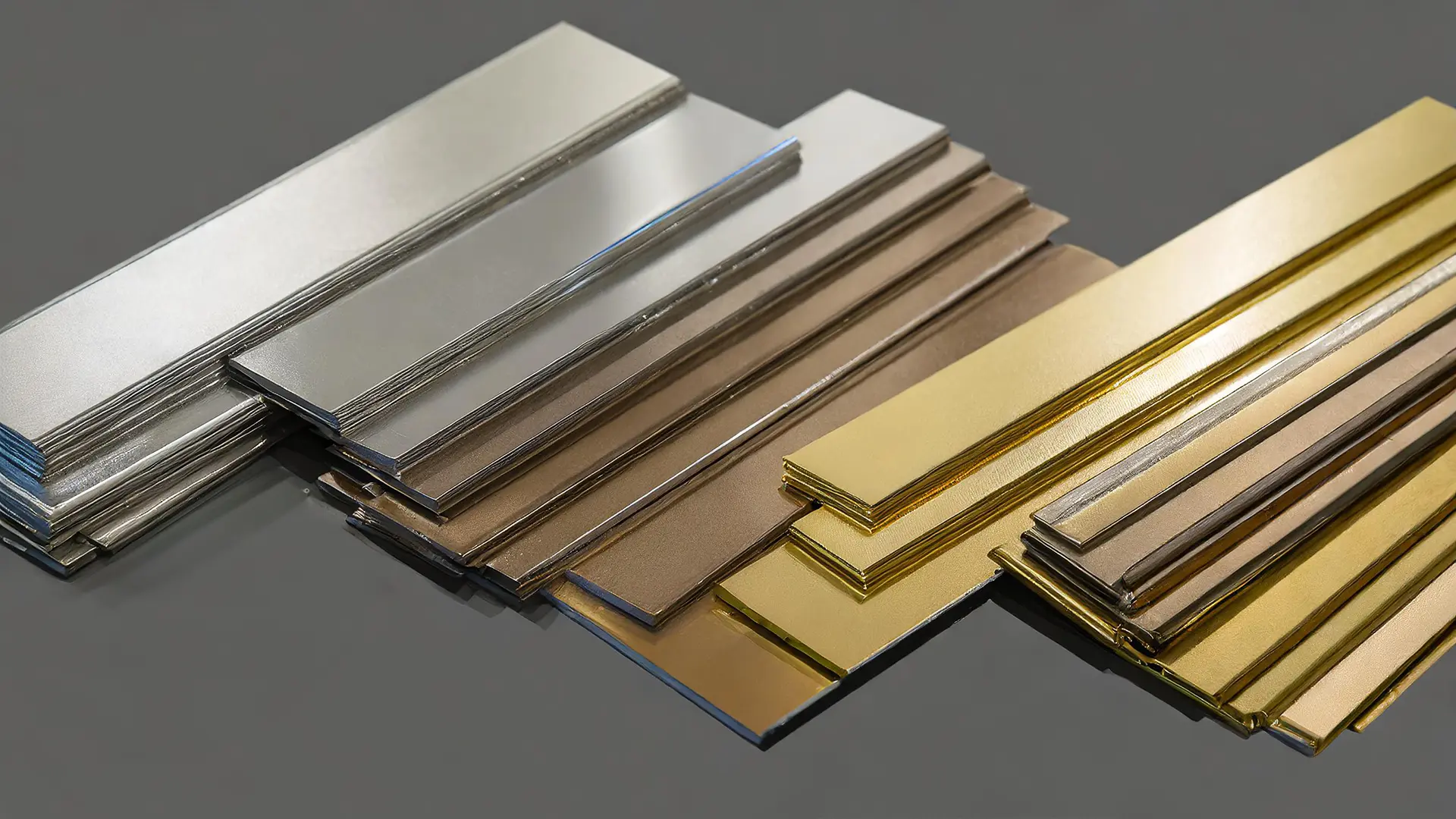
2. Polymers
Polymers in tensile specimen machining have a wide and complex role, serving multiple industrial applications. This is thanks to their unique mechanical properties such as flexibility, elasticity, and resistance to different chemicals. These characteristics make polymers indispensable in industries ranging from automotive to healthcare, offering innovative solutions and optimizing product performance.
Characteristics and Applications:
- Thermoplastics: Materials like polyethylene, polypropylene, PVC, and PET are known for their moldability and recyclability. Thermoplastics are extensively used in packaging, consumer products, and automotive components that benefit from lightweight and durable properties.
- Thermosetting Plastics: Epoxy and phenolic plastics, which harden when cured, provide high thermal stability and resistance to deformation under heat. These materials are important in electronic components, adhesives, and coatings, where durability under thermal stress is required.
- Elastomers: Including natural rubber and synthetic variants like neoprene, elastomers are celebrated for their extraordinary stretchability and resilience. They find applications in tire manufacturing, seals, and shock absorbers, assisting in the improvement of safety and comfort in the automotive and aerospace industries.
3. Composites
Composites combine different materials to leverage their strengths while mitigating weaknesses. This results in specimens with better mechanical properties such as high strength-to-weight ratios, corrosion resistance, and customized thermal behavior. These materials are crucial in fields where performance and durability are of utmost importance.
Characteristics and Applications:
- Fiber-reinforced Composites: Materials like fiberglass, carbon fiber, and Kevlar offer exceptional strength and stiffness while remaining lightweight. They are extensively used in the aerospace and automotive industries for structural components, sports equipment, and civil engineering applications.
- Laminates and Layered Materials: Including laminated glass and carbon fiber composites, these materials provide unique combinations of strength, flexibility, and impact resistance. They are essential in safety applications, such as bulletproof glass and protective gear. In addition, they enhance building and vehicle structural integrity.
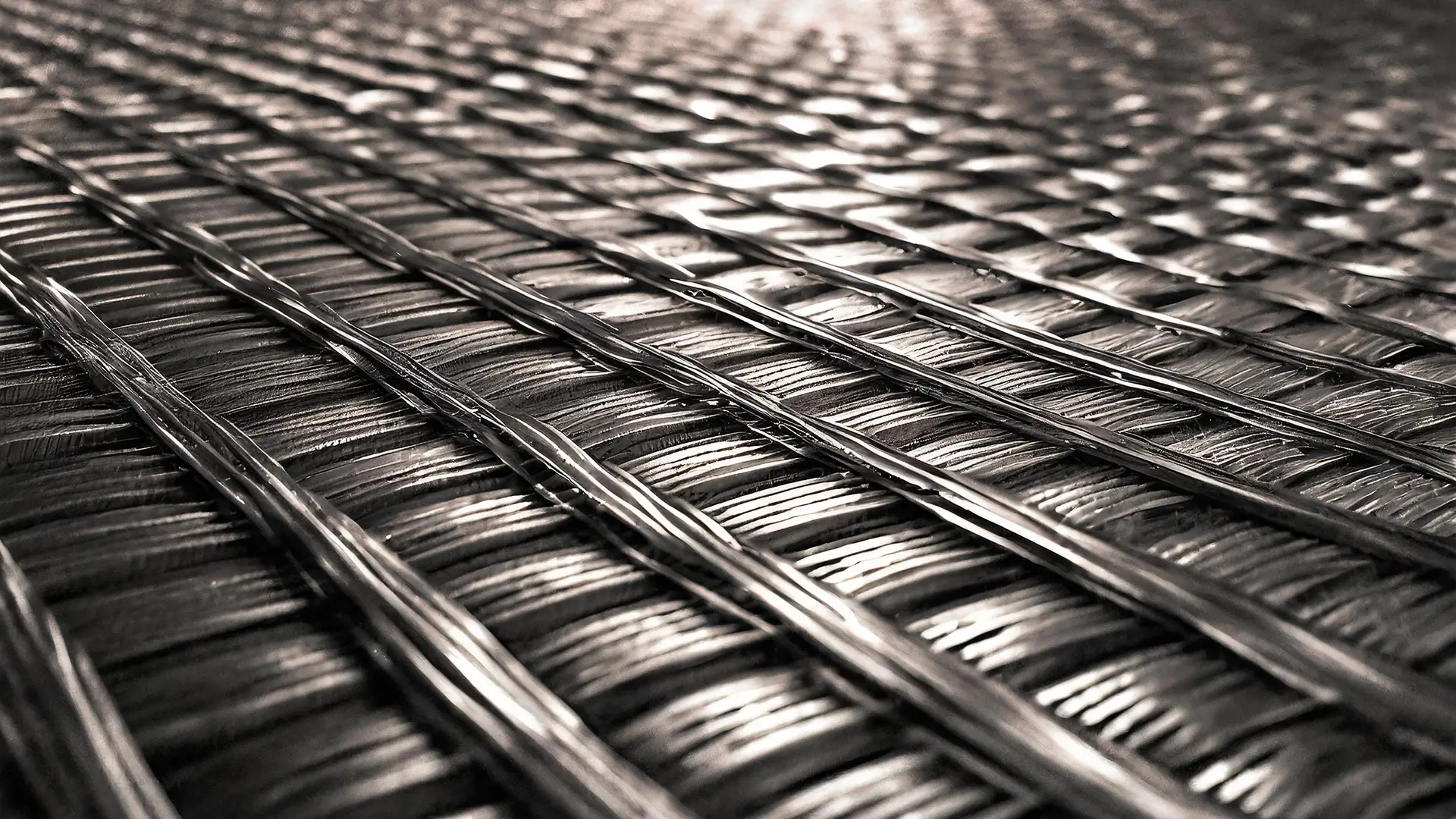
4. Ceramics
Ceramics are a group of inorganic, non-metallic materials known for their hardness, wear resistance, and high-temperature stability. From traditional applications to cutting-edge technologies, ceramics offer solutions where other materials fall short.
Characteristics and Applications:
- Traditional Ceramics: Materials like porcelain and earthenware are used in applications requiring aesthetic appeal and moderate strength, such as tableware and decorative tiles.
- Advanced Ceramics: Including alumina and zirconia, advanced ceramics are commonly used in high-performance applications such as aerospace components, biomedical implants, and electronic devices for their exceptional strength, resistance to wear, and thermal properties.
5. Textiles
Fabrics and textiles, particularly those used in technical applications, present an unusual set of characteristics and challenges in tensile specimen machining. These materials, ranging from natural fibers like cotton and silk to synthetic ones such as nylon and polyester, including advanced technical textiles like aramid and carbon fibers, are integral to an array of applications that extend well beyond traditional apparel.
Textiles in technical applications are distinguished by their specific mechanical properties such as tensile strength, elasticity, and abrasion resistance. These properties are important in sectors like automotive, where they contribute to the durability and safety of tire reinforcements, belts, and airbags. Aerospace uses advanced textiles for parachute cords, seat belts, and composite materials for aircraft components. These materials require materials that offer both lightweight properties and exceptional strength.
Textiles are uniquely challenging to prepare for tensile testing due to their fibrous nature. This can lead to variations in test results based on fiber alignment, weave pattern, and finishing treatments. The preparation of textile specimens for tensile testing often requires careful consideration of the directionality of the fabric (warp vs. weft) and the impact of any treatments or coatings on the material's behavior under stress.
Characteristics and Applications:
- Fabrics: Common fabrics include cotton, polyester, and nylon, known for their durability and versatility in everything from clothing to home furnishings. In technical applications, these fabrics are often treated or blended with other materials to optimize their properties. For example, increasing their tensile strength or making them flame retardant.
Technical Textiles: This category encompasses textiles designed for specific, often demanding applications. Examples include aramid fabrics used in bulletproof vests for their high strength-to-weight ratio and resistance to impact, and carbon fiber fabrics in composite materials for their stiffness, strength, and lightweight properties vital in high-performance sectors.
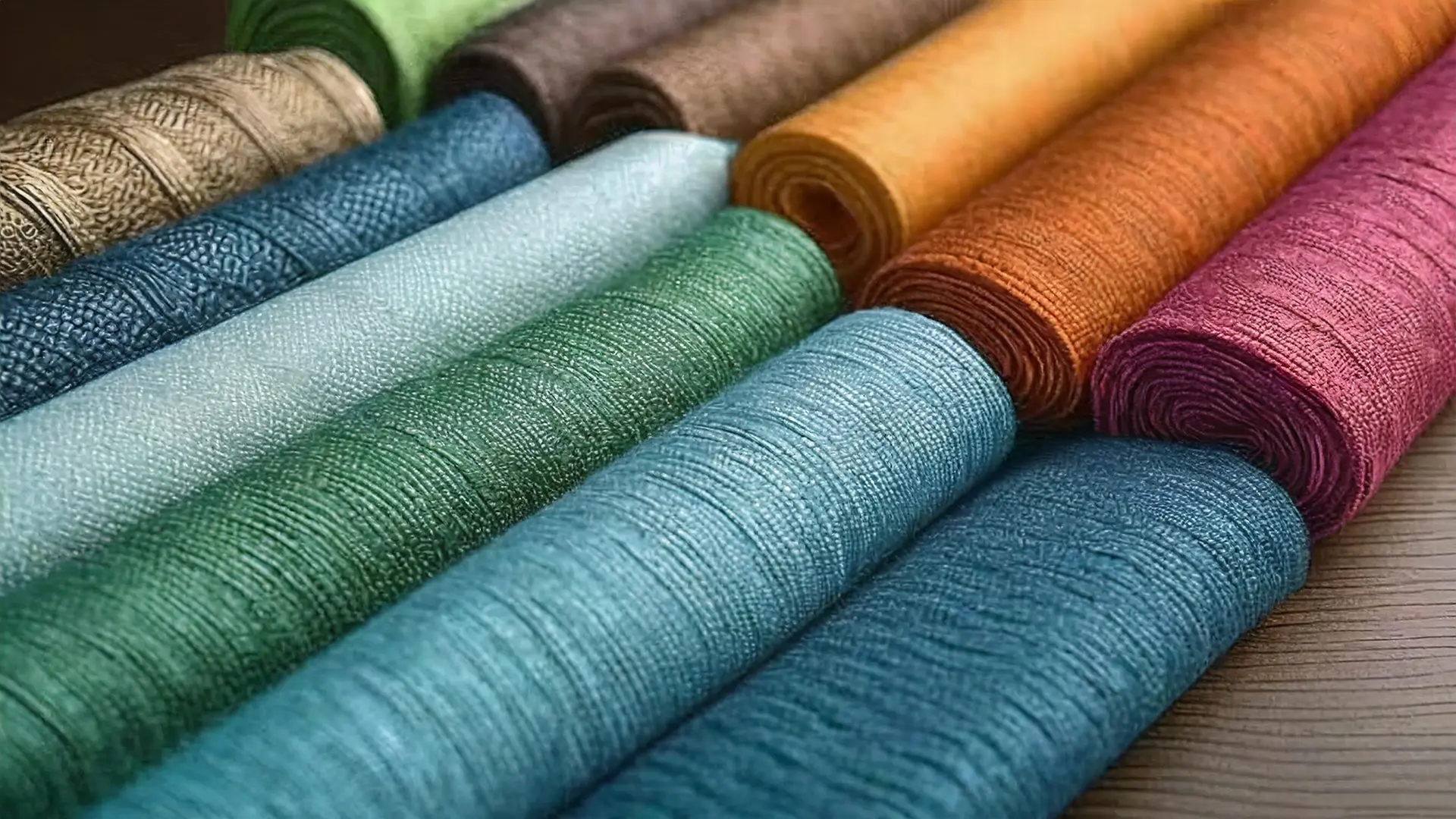
6. Biomaterials
In biomedical applications, biomaterials are a fundamental ingredient, particularly when it comes to tissues and fibers designed for these purposes. Biomaterials are a diverse category that consists of a wide array of substances, from metals and ceramics to polymers and composites. Each substance is selected for its unique properties that align with specific biomedical needs.
Biomaterials are chosen for their compatibility with biological tissues. This ensures that when they are used in medical devices or implants, they perform their intended function without eliciting an adverse reaction from the body. This compatibility allows for applications ranging from temporary scaffolds that guide tissue regeneration to permanent implants that replace lost function.
Biomaterials used in tissues and fibers for biomedical applications must undergo rigorous tensile testing. This is to verify they can withstand physiological loads in the body. This testing is critical for the development of medical devices and implants, guiding material selection and design to achieve the highest possible outcomes for patient care.
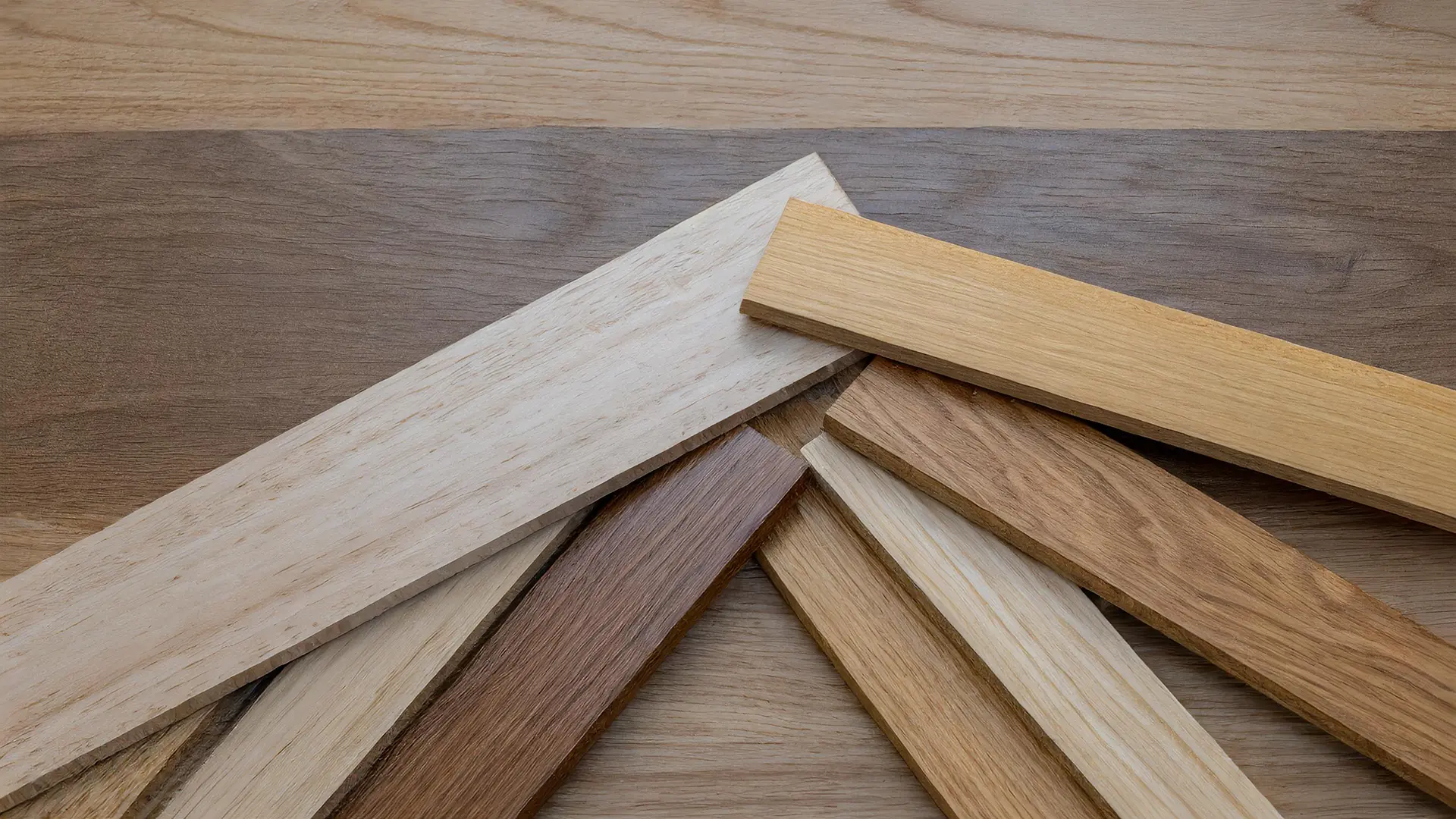
7. Other
It should be noted that tensile testing is not limited to traditional materials like metals or polymers; it extends to any material that has measurable mechanical properties when placed under tension. It includes natural substances as well as innovative new materials that are being researched and developed.
CNC Equipment at the Forefront of Tensile Specimen Machining
Materials testing, especially tensile specimen production, involves many pieces of equipment. Common tools in this arena include universal testing machines for assessing material properties, saws and milling machines for initial specimen shaping, lathes for fine-tuning dimensions, and grinders to achieve the requisite surface finish. Each of these plays an important role in specimen preparation.
Focusing on CNC machines, these advanced tools stand at the forefront of tensile specimen machining. CNC technology transforms the way tensile specimens are prepared by automating the machining process, allowing for intricate and precise cuts that are consistent every time. This automation increases efficiency and reduces the margin for error. This assures that each specimen is tested to the exact standards required.
CNC machines are tools that use digital instructions derived from a computer-aided design (CAD) file to control cutting tools and shape the material into a specified design. These machines can perform an array of operations, including cutting, milling, drilling, and grinding. Their versatility makes them invaluable for creating tensile specimens from different materials, ranging from metals to plastics and composites. By precisely controlling the movement of the cutting tools, CNC machines can produce specimens with complex geometries and tight tolerances that manual machining methods cannot achieve.
CNC machines offer several advantages in tensile specimen preparation. Their ability to replicate precise and complex shapes with high repeatability provide uniformity across specimens, a critical factor in reliable testing results. Moreover, CNC machining reduces preparation time, allowing quicker transitions from specimen preparation to testing. With advancements in technology, CNC machines continue to expand the possibilities in materials testing.
Best CNC Machines for Sample Tensile Machining from TensileMill
When discussing the finest examples of CNC machines specifically engineered for tensile sample machining, we are among the leading manufacturers. Leveraging years of experience in tensile testing and the fabrication of tensile specimens of all types and complexities, coupled with invaluable feedback from our esteemed clients, we have honed our expertise to offer comprehensive services in this specialized domain. Here are some of our best-selling machines that demonstrate the capabilities we offer.

TensileMill CNC MINI for Flat Tensile Specimen Machining
Despite its compact size, the TensileMill CNC MINI is a powerhouse designed for ultimate flexibility in tensile specimen preparation. It also has full CNC machining capabilities. Recent upgrades have made MINI surpass our Classic model in almost every aspect. This includes a smaller footprint, larger table size, higher power, and enhanced precision & repeatability - all at a cheaper price. It's perfectly suited to untrained CNC machinists, offering a turnkey, super user-friendly solution for accurate and repeatable results. Equipped with a 10" LCD screen and our renowned Tensile Software, this machine simplifies the preparation of high-quality tensile specimens, making it an ideal choice for laboratories seeking efficiency without compromising on quality.
TensileTurn CNC - Industrial Upgrade for Round Tensile Sample Machining

For industrial-grade round tensile specimen preparation, the TensileTurn CNC - Industrial Upgrade Model offers the best results. This automatic CNC lathe is designed to prepare accurate round tensile specimens with the highest accuracy in tensile results. Its user-friendly touchscreen interface allows operators of any skill level to quickly prepare specimens in standard or custom dimensions. The TensileTurn CNC - Industrial Upgrade Model excels at machining a wide assortment of materials, offering features like automatic center drilling and handling different stock shapes. This machine is the ultimate solution for laboratories aiming to streamline their tensile specimen preparation process, delivering accurate and repeatable results easily.
You won't regret taking the time to explore these machines, which have already garnered hundreds of positive reviews. Rest assured, they represent the ideal solution for your needs, solidifying their position as a top choice in the field of tensile specimen preparation.
Expand Your Understanding of Tensile Testing and Sample Preparation
For those keen on expanding their knowledge, we recommend exploring other blogs related to tensile sample machining:
- Tensile Testing: The Role of Material Examination and Tensile Sample Preparation
- How Untrained Operators Achieved Proficiency in CNC Machining of Tensile Dog Bone Specimen
- The Importance of Compliance with Tensile Testing International Standards
Should you have additional questions regarding tensile testing or tensile sample machining, or if you are interested in purchasing or seeking clarifications about our equipment, please feel free to reach out to us directly or through a quote request. We at TensileMill CNC are here to answer all your questions and help you find the perfect solution for your needs.